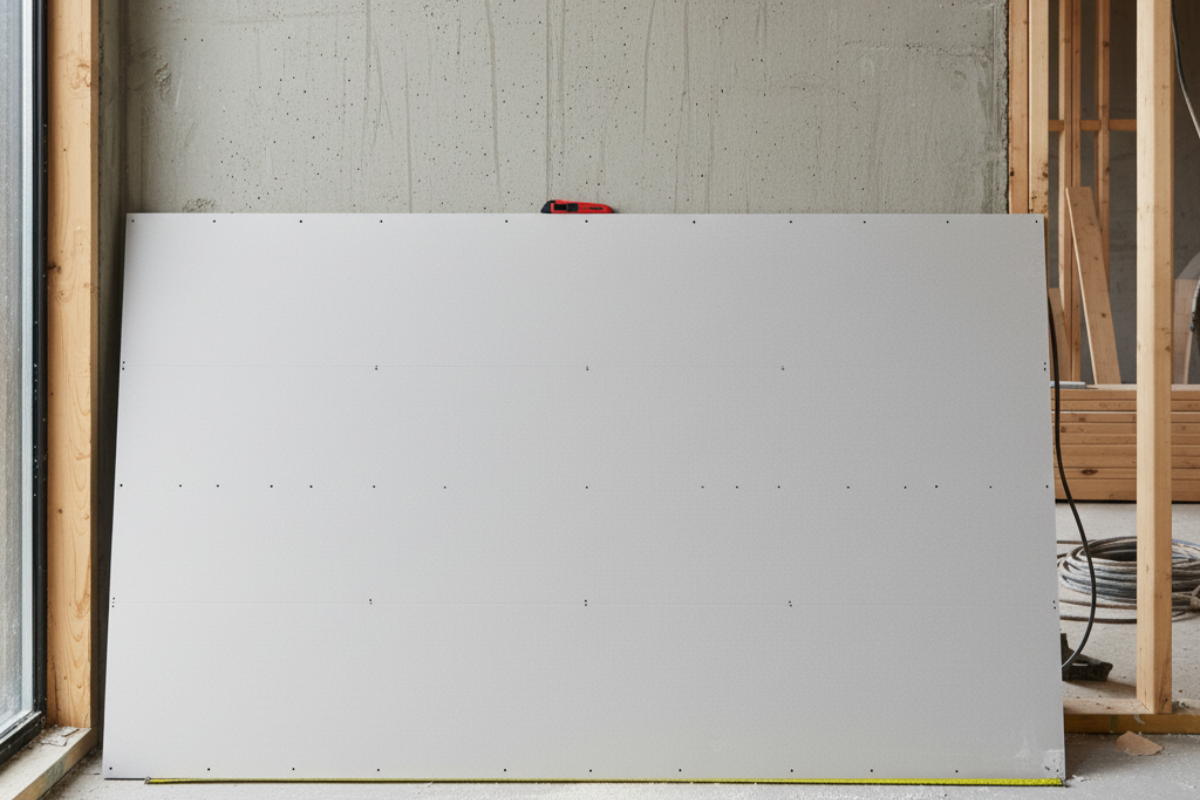How to Compare Gypsum Board Prices from Different Suppliers in the Philippines

Gypsum board is a common building material for walls and ceilings. Gypsum Board Prices often determine the total cost of construction projects. This material is made mainly from gypsum plaster pressed between thick sheets of paper. It is also known by the names drywall or plasterboard in other countries. Using gypsum board offers several key benefits for builders and homeowners.
It is lightweight, which makes it easy to install and speeds up construction time. The boards also provide good fire resistance for interior applications. Furthermore, gypsum board is a budget-friendly option compared to traditional materials. This mix of lower costs and good results makes it a very popular choice.
What is a Gypsum Board?
The Purpose of Gypsum Board in Construction
Gypsum board serves as a quick and efficient way to finish interior spaces. It provides a smooth surface ready for paint or wallpaper application. Its structure helps to insulate rooms against both heat and sound. Modern construction relies heavily on this material for its versatility and speed. This enables faster turnover for residential and commercial projects nationwide.
Different Types of Gypsum Boards Available
Not all gypsum boards are exactly the same product. Standard boards are the most common and lowest-priced option. Moisture-resistant boards, often with a green paper, are best for wet areas like bathrooms. Fire-rated boards, usually marked with a red face paper, offer better fire safety. Specialty boards like sound-dampening or impact-resistant types also exist. Each type is designed for a specific performance need on the project.
Why Do Prices Fluctuate?
Factors Influencing Gypsum Board Prices
Understanding the price variations among suppliers is crucial for budgeting. You will find that prices change based on several factors. The first major factor is the board's type and its unique features. Standard boards are generally the most affordable option available. Moisture-resistant and fire-rated boards cost more due to their added qualities. Thickness is another key factor in determining the price of the final product. Thicker boards offer better soundproofing and fire protection but cost more money.
The Impact of Brand and Supplier Cost
The brand and its origin also heavily influence the final price you will pay. International brands with a long history may charge higher prices. Local manufacturers often offer more competitive pricing for similar quality. Finally, the supplier's location and their own business costs matter greatly. A large national hardware chain might charge a different price than a small local dealer. Shipping fees and storage costs are sometimes included in the final price. Always ask for a detailed quote to see what services are covered.
Quality Versus Cost Consideration
When comparing prices, quality must remain a top priority. A board that is extremely cheap may signal poor quality or inconsistent standards. Low-quality boards might break easily during installation, wasting time and materials. Look for certifications and good reviews from other construction professionals. Reliable suppliers will stand behind their products with clear warranties. It is smart to invest a little more for a superior product that lasts longer.
How to Compare and Secure the Best Deal
Defining Your Project Specifications Clearly
Comparing prices effectively requires a systematic and organized approach. Start by clearly defining the specifications of the board you need for your project. You must know the exact type, size, and thickness before you ask for quotes. For example, specify if you need 9mm standard or 12mm moisture-resistant boards. Next, create a list of potential suppliers across different categories. This list should include large hardware stores and smaller local construction depots. You should also check online marketplaces for possible bulk deals.
Requesting and Analyzing Formal Quotations
When you contact each supplier, always request a formal, written quotation document. The quotation must clearly list the price per board and any necessary taxes. It must also detail the total price for the specific quantity you intend to purchase. This step is important because some suppliers offer discounts for bulk orders. Do not forget to inquire about the delivery costs to your specific project site. A low unit price might not be a good deal if the delivery charge is unreasonably high. You should also confirm the availability of the exact items you need.
Using Negotiation and Bulk Buying Strategies
A helpful strategy is to create a simple spreadsheet to organize the information you gather. This tool lets you easily compare different options side-by-side. For each supplier, list the unit price, delivery cost, and the overall total cost. You should also note the brand and the board specifications to ensure a fair comparison. Purchasing in large quantities is one of the best ways to lower your costs. Suppliers are usually willing to offer substantial discounts for volume purchases. Use your comparison data to negotiate for a better final price with your preferred supplier.
Key Takeaway
Comparing different suppliers in the Philippines is an important part of project management. Gypsum Board Prices should be analyzed based on exact specifications and total costs. Remember to look beyond the basic unit price and factor in quality, delivery, and supplier reputation. By following a clear, structured comparison, you can secure the best possible deal. This approach ensures your project uses high-quality materials within your construction budget.
- AI
- Vitamins
- Health
- Admin/office jobs
- News
- Art
- Causes
- Crafts
- Dance
- Drinks
- Film
- Fitness
- Food
- Jogos
- Gardening
- Health
- Início
- Literature
- Music
- Networking
- Outro
- Party
- Religion
- Shopping
- Sports
- Theater
- Wellness


